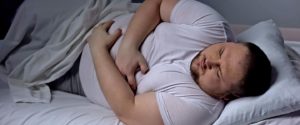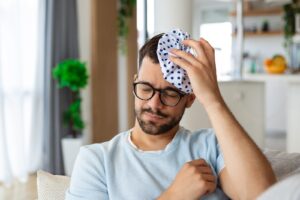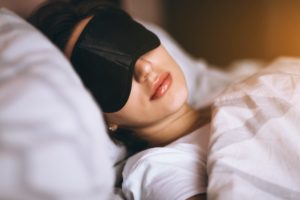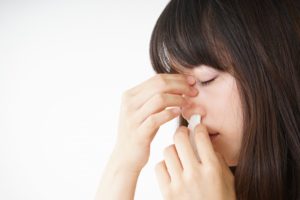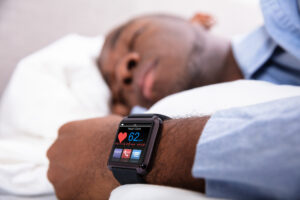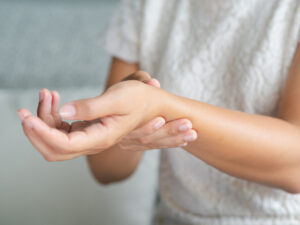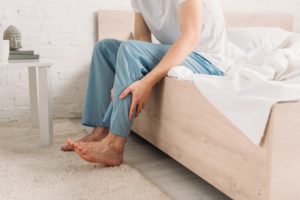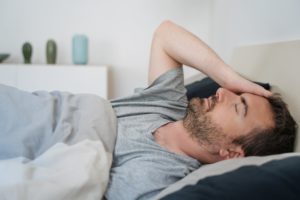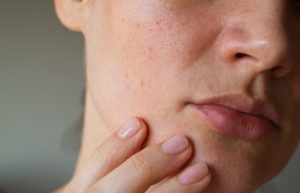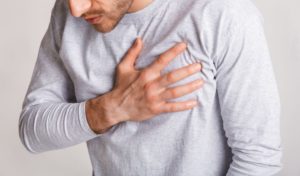Can Lack of Sleep Cause High Blood Pressure?
All day every day, your heart pumps blood through your body, delivering oxygen and nutrients to your cells and whisking away waste products . Blood pressure is the term used to describe the force that your blood exerts against arteries as it flows through your body .
About 45% of American adults have high blood pressure, also known as hypertension . That means that their blood pressure when the heart contracts, known as systolic pressure, is higher than 140—or their blood pressure when the heart relaxes after contracting, known as diastolic pressure, is higher than 90. Blood pressure is represented as a fraction with these two measurements, like so: systolic pressure/diastolic pressure.
If you had a pipe that was extremely full and busting at the seams, that pressure could damage the pipe. In a similar way, high blood pressure damages the walls of the arteries and makes the heart work harder. Hypertension that is not treated contributes to cardiovascular disease and can lead to heart attacks, stroke and kidney disease . That’s why it’s important to understand the ways that blood pressure and sleep affect each other.
Why a Lack of Sleep Affects Blood Pressure
Healthy individuals experience a natural dip in blood pressure while they sleep . As a result, the heart usually doesn’t have to work as hard during sleep as it does during the day. However, this beneficial drop in blood pressure may not occur—or may not occur for long enough—in people who sleep less than six hours a night or who have fragmented, low-quality sleep .
People with insomnia, a sleep disorder characterized by problems falling asleep or staying asleep, have an increased likelihood of developing high blood pressure . Not only do people with insomnia frequently get less sleep than they need, but they also tend to experience elevated sympathetic nervous system activity . Instead of winding down, their bodies prepare to act, as if facing a threat. This state triggers an increase in blood pressure.
Hypertension isn’t the only risk faced by people who are sleep deprived. Over time, sleep loss can contribute to:
- Increased vulnerability to sickness and infection
- Obesity
- Diabetes
- Heart disease
- Strained relationships
- Accidents at work, on the road, or at home
Conversely, Does High Blood Pressure Affect Sleep?
The relationship between poor sleep and high blood pressure is bidirectional. So, in addition to being an outcome of poor sleep, hypertension may also contribute to sleep problems . Studies indicate that adults with high blood pressure may be up to three times more likely to develop insomnia than individuals whose blood pressure falls within the normal range.
Some experts hypothesize that people with hypertension may experience disturbances in the production of the sleep hormone melatonin, which could alter their circadian rhythms and make it harder to sleep.
Additionally, high blood pressure may be connected to health conditions, behaviors, or other factors that can also lead to sleep problems, including:
Is Sleep Apnea to Blame for Poor Sleep?
High blood pressure is especially common in people who have untreated obstructive sleep apnea (OSA), a disorder that causes momentary pauses in breathing during sleep. About half of all people with OSA also have hypertension. In some individuals, both hypertension and OSA may be complications of obesity, but for many, OSA actually causes high blood pressure . The more severe a person’s OSA is, the more likely they are to develop hypertension.
Evidence suggests that the majority of people with untreated OSA don’t experience the typical nighttime dip in blood pressure . This irregularity might be attributable, at least in part, to the sleep disruptions caused by breathing events. Many people with OSA also experience an early morning rise in blood pressure. Studies indicate that this is the body’s response to low oxygen levels caused by pauses in breathing .
The good news is that the standard treatment for OSA—positive airway pressure therapy—not only reduces the severity and frequency of breathing events but also lowers blood pressure for many people. Even small reductions in blood pressure can significantly reduce the risk of heart disease and cardiovascular events, so it’s important for individuals with OSA to seek treatment and adhere to the therapies prescribed by their doctors.
What You Can Do to Prevent High Blood Pressure
There are a number of steps you can take to reduce your risk for high blood pressure, many of which are also healthy sleep habits.
- Prioritize sleep: Setting aside at least seven hours every night for sleep supports a nighttime dip in blood pressure and limits your chances of developing hypertension. Budgeting enough time for sleep can also help you avoid the effects of sleep deprivation.
- Eat a healthy diet: Avoid processed and salty foods, which can increase your blood pressure . Instead, eat plenty of whole grains, fruits, and vegetables . Foods that are high in potassium—such as bananas, yogurt, and beans—can help you avoid nutrient deficiencies that lead to hypertension.
- Exercise regularly: Being physically active supports the health of your cardiovascular system and can lower your blood pressure. Try engaging in aerobic exercises such as brisk walking, bicycling, or dancing a few times a week.
- Manage stress: Taking steps to manage stress—such as meditating or practicing progressive muscle relaxation—may help you lower your blood pressure. Because stress can keep you up at night and aggravate insomnia, these techniques may also help you sleep better.
- Limit alcohol: Drinking too much alcohol can lead to hypertension. Experts recommend that women limit themselves to one drink a day, and men, no more than two. Because alcohol can interfere with sleep, try to avoid it in the hours before bedtime.
- Avoid tobacco: Smoking cigarettes can harm your blood vessels, and the nicotine in tobacco products can cause high blood pressure. Smoking and vaping can also negatively impact sleep.
Certain medical conditions, such as diabetes and sleep apnea can also contribute to high blood pressure—so it’s important to work with your doctor to manage such conditions. Additionally, hypertension sometimes occurs even when a person makes lifestyle modifications. If this happens to you, your doctor may prescribe medication to lower your blood pressure.
Medical Disclaimer: The content on this page should not be taken as medical advice or used as a recommendation for any specific treatment or medication. Always consult your doctor before taking a new medication or changing your current treatment.

Still have questions? Ask our community!
Join our Sleep Care Community — a trusted hub of sleep health professionals, product specialists, and people just like you. Whether you need expert sleep advice for your insomnia or you’re searching for the perfect mattress, we’ve got you covered. Get personalized guidance from the experts who know sleep best.
References
16 Sources
-
InformedHealth.org [Internet]. Cologne, Germany: Institute for Quality and Efficiency in Health Care (IQWiG); 2006-. In brief: How does the blood circulatory system work? [Updated 2023 Nov 21].
https://www.ncbi.nlm.nih.gov/books/NBK279250/ -
High Blood Pressure. MedlinePlus
https://medlineplus.gov/highbloodpressure.html -
Egan, B. M. (2024, May). The prevalence and control of hypertension in adults. In G. Bakris, K. Law, J. Forman (Ed.). UpToDate.
https://www.uptodate.com/contents/the-prevalence-and-control-of-hypertension-in-adults -
Centers for Disease Control and Prevention. About High Blood Pressure. https://www.cdc.gov/high-blood-pressure/about/
https://www.cdc.gov/high-blood-pressure/about/ -
Centers for Disease Control and Prevention. About Sleep and Your Heart Health. https://www.cdc.gov/heart-disease/about/sleep-and-heart-health.html
https://www.cdc.gov/heart-disease/about/sleep-and-heart-health.html -
Cirelli, C. (2024, May). Insufficient sleep: Definition, epidemiology, and adverse outcomes. In R. Benca & A. Eichler (Ed.). UpToDate.
https://www.uptodate.com/contents/insufficient-sleep-definition-epidemiology-and-adverse-outcomes -
Mehra, R. (2024, May). Obstructive sleep apnea and cardiovascular disease in adults. In N. Collop & G. Finlay (Ed.). UpToDate.
https://www.uptodate.com/contents/obstructive-sleep-apnea-and-cardiovascular-disease-in-adults -
Bonnet, M., Arand, D. (2024, May). Risk factors, comorbidities, and consequences of insomnia in adults. In R. Benca & A. Eichler (Ed.). UpToDate.
https://www.uptodate.com/contents/risk-factors-comorbidities-and-consequences-of-insomnia-in-adults -
Alshak MN, Das JM. Neuroanatomy, Sympathetic Nervous System. [Updated 2023 May 8]. In: StatPearls [Internet]. Treasure Island (FL): StatPearls Publishing; 2024 Jan-.
https://www.ncbi.nlm.nih.gov/books/NBK542195/ -
Liu D, Yu C, Huang K, Thomas S, Yang W, Liu S, Kuang J. The Association between Hypertension and Insomnia: A Bidirectional Meta-Analysis of Prospective Cohort Studies. Int J Hypertens. 2022 Dec 29;2022:4476905. doi: 10.1155/2022/4476905. PMID: 36618449; PMCID: PMC9815923.
https://pubmed.ncbi.nlm.nih.gov/36618449/ -
Alnawwar MA, Alraddadi MI, Algethmi RA, Salem GA, Salem MA, Alharbi AA. The Effect of Physical Activity on Sleep Quality and Sleep Disorder: A Systematic Review. Cureus. 2023 Aug 16;15(8):e43595. doi: 10.7759/cureus.43595. PMID: 37719583; PMCID: PMC10503965.
https://pubmed.ncbi.nlm.nih.gov/37719583/ -
Mokros Ł, Kuczyński W, Franczak Ł, Białasiewicz P. Morning Diastolic Blood Pressure May Be Independently Associated With Severity of Obstructive Sleep Apnea in Non-Hypertensive Patients: A Cross-Sectional Study. J Clin Sleep Med. 2017 Jul 15;13(7):905-910. doi: 10.5664/jcsm.6664. PMID: 28502282; PMCID: PMC5482582.
https://pubmed.ncbi.nlm.nih.gov/28502282/ -
Cuspidi C, Tadic M, Sala C, Gherbesi E, Grassi G, Mancia G. Blood Pressure Non-Dipping and Obstructive Sleep Apnea Syndrome: A Meta-Analysis. J Clin Med. 2019 Sep 2;8(9):1367. doi: 10.3390/jcm8091367. PMID: 31480717; PMCID: PMC6780266.
https://pubmed.ncbi.nlm.nih.gov/31480717/ -
Turnbull CD, Sen D, Kohler M, Petousi N, Stradling JR. Effect of Supplemental Oxygen on Blood Pressure in Obstructive Sleep Apnea (SOX). A Randomized Continuous Positive Airway Pressure Withdrawal Trial. Am J Respir Crit Care Med. 2019 Jan 15;199(2):211-219. doi: 10.1164/rccm.201802-0240OC. PMID: 30025470; PMCID: PMC6353003.
https://pubmed.ncbi.nlm.nih.gov/30025470/ -
Centers for Disease Control and Prevention. High Blood Pressure Risk Factors. https://www.cdc.gov/high-blood-pressure/risk-factors/
https://www.cdc.gov/high-blood-pressure/risk-factors/ -
How to Prevent High Blood Pressure. MedlinePlus
https://medlineplus.gov/howtopreventhighbloodpressure.html


